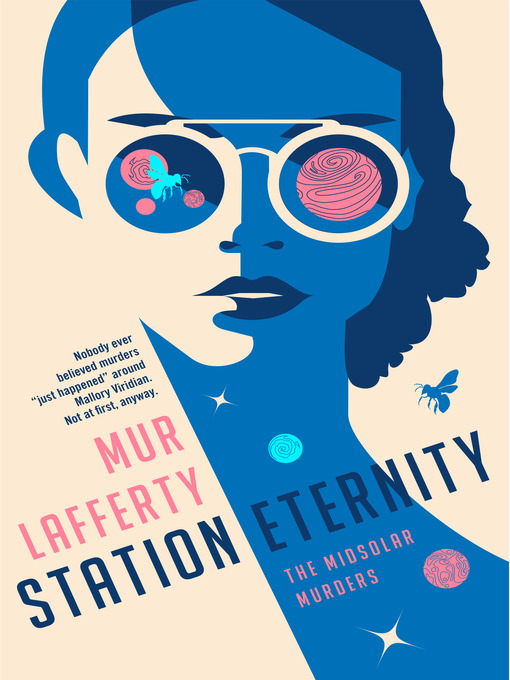Review by Booklist Review
It's the end of the world as Emily knows it. No, like, for real. Due to a colossal miscalculation by scientists, Earth now has about a month before the sun shifts from yellow dwarf to red giant and annihilates the planet. All living organisms are doomed. Good thing that Emily isn't alive Emily is an artificial consciousness. Created by a team at MIT to be the first nonhuman psychiatrist, Emily is now tasked with the preservation of humankind. Time is running out though, as forces are after Emily to use her in a nefarious plan that will leave billions of people to the fate of the sun. Will Emily be able to save all of the souls of the world, including her own? It's no small feat to make a nonhuman character relatable, but debut author Wheaton manages it with aplomb. Emily Eternal is cleverly written, with sci-fi concepts that are accessible to nonreaders of the genre. Fans of Andy Weir and Blake Crouch will enjoy the wit and action of Emily's story.--LynnDee Wathen Copyright 2019 Booklist
From Booklist, Copyright (c) American Library Association. Used with permission.
Review by Publisher's Weekly Review
Before the sun explodes and destroys life on Earth, a socially and morally inclined computer program hopes to preserve humankind in this disjointed apocalyptic thriller set in the very near future. Wheaton's debut follows the perspective of Emily, an AI who can appear to people wearing interface chips and read their thoughts and memories. After her creator, Dr. Nathan Wyman, is assassinated and her servers at MIT are destroyed by a mysterious organization, Emily survives only on the interface chip of her human crush, Jason Hatta, an engineering PhD student. While searching for a way to rescue humans from impending disaster, Emily and Jason develop an unconventional relationship. Wheaton tries to emphasize compassion and trust through Emily's growing understanding of human nature, but technological revelations dictate the path of the story, creating an action-driven plot that feels mechanical. This trite exploration of what makes humans human and the ethics of AI will feel familiar to cyberpunk fans. Agent: Laura Dail, Laura Dail Literary. (Apr.) © Copyright PWxyz, LLC. All rights reserved.
(c) Copyright PWxyz, LLC. All rights reserved
Review by Library Journal Review
Five billion years earlier than scientists have postulated, our sun is beginning to die. With only six short months before the sun becomes a red giant capable of devouring the entire solar system, the human race seems slated for extinction. However, Emily, an artificially developed intelligence, may have the answer to preserving at least part of the race: downloading the thoughts, personalities, and memories of billions of people into her microprocessors and ejecting herself into space. She must race against time with the aid of college student Jason and small-town sheriff Mayra, while evading capture by scientists and another supercomputer, Emily-2, who believe the best course of action is to glean 1,500 of the brightest of humankind and send them on a one-way trip out of the solar system. VERDICT Wheaton's fast-paced, engrossing novel that explores the possibility of being able to exist away from our home planet, whether as humans or -something new and evolutionarily distinctive.- Jane Henriksen Baird, formerly at Anchorage P.L., AK © Copyright 2019. Library Journals LLC, a wholly owned subsidiary of Media Source, Inc. No redistribution permitted.
(c) Copyright Library Journals LLC, a wholly owned subsidiary of Media Source, Inc. No redistribution permitted.
Review by Kirkus Book Review
Emily is an artificial consciousness people can only sense if they're wearing an interface chip, and she's barely begun her life when the very people she's striving to connect with discover they're on a countdown to mass extinction.Debut author Wheaton renders a new twist on humanity's survival in this bittersweet post-apocalyptic novel. Emily may appear to chip-wearing humans to be a 30-something, but her five years of life have been spent figuring out how to relate to human beings, so she's got the emotional IQ of a teenager. She tries to enforce human limits on herself to please Dr. Nathan Wyman, her creator, and to learn the nuances of experience, agency, and empathy, but she's constantly testing just how far she can go and still get what she wants. So far, what she's wanted most is to help, but she can't solve the sun's demise. When she's finally forced to triage a last-ditch effort to record humanity, since there's no chance of saving them, she accidentally enters the memories of chemical engineer Jason Hatta, her crush, and all she wants is to submerge herself in the data until the end comes. Her final farewell's begun when she uncovers a genetic anomaly so radical it has the potential to change everything. But Emily's discovery isn't as novel or secret as she thinks, and not everyone's onboard. Fast-paced chase scenes, double-crosses, and the pall of imminent doom propel Emily toward an innovative answer about the nature of existence in a quirky mix of melancholy, irreverence, and romance in which the only way to save something is to lose it. In Emily, humanity gets a young god whose strengths and flaws are of our own making.A coming-of-age story of the artificial consciousness who becomes humanity's reluctant savior blurs together questions of existentialism, human essentialism, and love. Copyright Kirkus Reviews, used with permission.
Copyright (c) Kirkus Reviews, used with permission.


